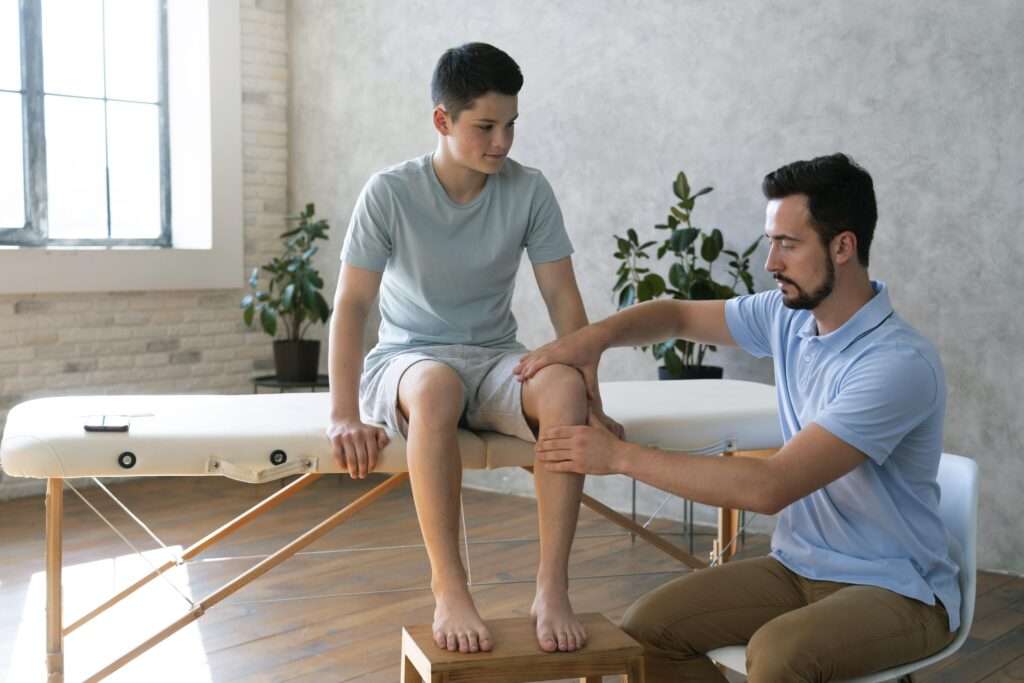REHABILITATION TRAINING

Rehabilitation Training A Pathway to Recovery and Independence
Rehabilitation training plays a crucial role in helping individuals recover from injuries, illnesses, surgeries, and chronic conditions. As a fitness coach specializing in rehabilitation training, my goal is to assist clients in regaining their strength, mobility, and independence. In this blog, we will explore the importance of rehabilitation training, the benefits it offers, and how it can be seamlessly integrated into the recovery process alongside or after physiotherapy.

Understanding Rehabilitation Training: Rehabilitation training involves creating customized exercise programs tailored to the specific needs and goals of each client. It focuses on rebuilding strength, flexibility, and endurance, while also addressing any functional limitations caused by the injury or condition. By working closely with clients, a rehabilitation fitness coach can develop a comprehensive program that gradually progresses as the individual’s abilities improve.
Benefits of Rehabilitation Training
Restoring Physical Function: Rehabilitation training targets the affected areas, aiming to restore physical function and alleviate pain. Through targeted exercises and movements, clients can regain their range of motion and improve their overall mobility. b. Building Strength and Stability: By implementing appropriate resistance training and core stabilization exercises, rehabilitation training helps rebuild strength and stability in weakened muscles or joints. This promotes a more balanced and functional body. c. Enhancing Mental Well-being: Physical limitations can often take a toll on an individual’s mental health. Rehabilitation training not only focuses on the physical aspects but also provides an outlet for individuals to regain their confidence, self-esteem, and overall well-being. d. Facilitating Independence: The ultimate goal of rehabilitation training is to enable clients to regain their independence. By improving their physical capabilities, individuals can resume their daily activities and enjoy a better quality of life.

Integrating Rehabilitation Training with Physiotherapy: Rehabilitation training and physiotherapy go hand in hand in the recovery process. While physiotherapy primarily focuses on diagnosing and treating injuries or conditions, rehabilitation training builds upon the progress made in physiotherapy sessions. By collaborating with physiotherapists and healthcare professionals, a fitness coach specializing in rehabilitation training can create a seamless transition from physiotherapy to a structured exercise program.
Holistic Approach to Recovery
Rehabilitation training does not focus solely on physical exercises. It embraces a holistic approach by incorporating other essential elements such as nutrition, lifestyle modifications, and rest. This comprehensive approach ensures that the individual’s recovery is supported from all angles, optimizing the healing process.

Tailoring Programs to Specific Needs: Each individual’s rehabilitation journey is unique, and it is essential to design exercise programs that address their specific needs and goals. A rehabilitation fitness coach takes into account the client’s medical history, current physical condition, and desired outcomes to create a personalized program that gradually progresses in intensity and complexity.
Rehabilitation training, when integrated effectively into the recovery process, can make a significant difference in an individual’s ability to regain their strength, mobility, and independence. As a fitness coach specializing in this field, my role is to create tailored exercise programs that address the unique needs and goals of each client. By combining physical exercises, collaboration with healthcare professionals, and a holistic approach to recovery, rehabilitation training paves the way for a successful and fulfilling rehabilitation journey.
